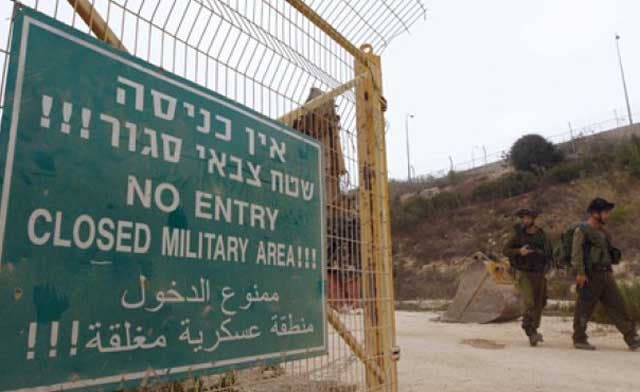Cyprus offers mediation between Lebanon, Israel on maritime border dispute
Cyprus has offered to mediate between Lebanon and Israel over a maritime border dispute that is delaying some oil and gas exploration in the Mediterranean, a Cypriot official said Monday.
Both Lebanon and Israel claim a small maritime area of 850 square kilometers. The dispute has held up ratification of the 2007 Lebanese-Cypriot agreement, defining Exclusive Economic Zones among the three countries. It has also led to bitter exchanges and threats between Israel and Lebanon.
Neither immediately commented on the mediation offer from Cyprus.
Lebanon and Israel remain technically in a state of war and have fought several battles over the past four decades.
“We are already involved in this sort of thing to help as much as we can,” Solon Kassinis, director of the Department of Energy in Cyprus, told The Associated Press about mediating between Israel and Lebanon. He spoke in Beirut while taking part in the Lebanon International Oil and Gas Summit.
Kassinis said it would it be unfortunate if the negotiations ended abruptly between Lebanon and Israel. Instead, he said, Lebanon should take whatever Israel is offering as a first step, and then continue negotiating. Kassinis said the agreement which Cyprus and Lebanon signed 2007 “should be concluded and should be sent to the parliament to be ratified as we did in Cyprus.”
Lebanon says that a bilateral agreement signed in 2010 between Cyprus and Israel and ratified a year later conflicts with the United Nations Convention on the Law of the Sea. Lebanon demands that it be amended in accordance with international laws that govern the demarcation of maritime borders among states.
Israel insists that its undersea oil development projects are all in its territorial waters.
Kassinis said many people are talking about future generations, but they should address that when they have surplus funds available.
“Neither Cyprus nor Lebanon have this money today,” he said. Cyprus is reeling from Europe’s financial crisis, its economy is projected to shrink by half a percentage point of GDP this year and unemployment is hitting record highs.
Lebanon has one of the highest percentage debts in the world, amounting to about $55 billion or 130 percent of the country’s GDP.
Lebanon Finance Minister Mohammed Safadi said his ministry’s taxation plan “would actually make a program of how to repay all our debt, and all the other money will go for investment.”
Some 15 firms have expressed interest to drill in waters off the coast of Cyprus as part of a second licensing round, despite Turkey's objections.
Turkey does not recognize Cyprus as a sovereign country. Cyprus was split into Greek and Turkish zones in 1974 after an invasion by Turkey.
Lebanon has been recently moving forward toward oil exploration. In 2010, its parliament passed a law allowing oil and gas exploration off its coast after years of delays. Last month Lebanon appointed a six-member Petroleum Administration board to organize bids for the country's first offshore oil and natural-gas exploration licenses.
Cesar Abou Khalil, an adviser to Energy and Water Minister Gibran Bassil said that “by the beginning of 2013, we will have a complete legal package to be shared with the industry prior to the launch of the first licensing that shall be announced by minister Bassil in the very, very near future.”
Israel has been exploring extensively in Mediterranean waters off its coast and is developing large natural gas fields. Two of its fields are due to start producing soon. Experts say their estimated combined reserves of 8.5 trillion cubic feet of natural gas can cover Israel’s energy needs for the next two decades.
